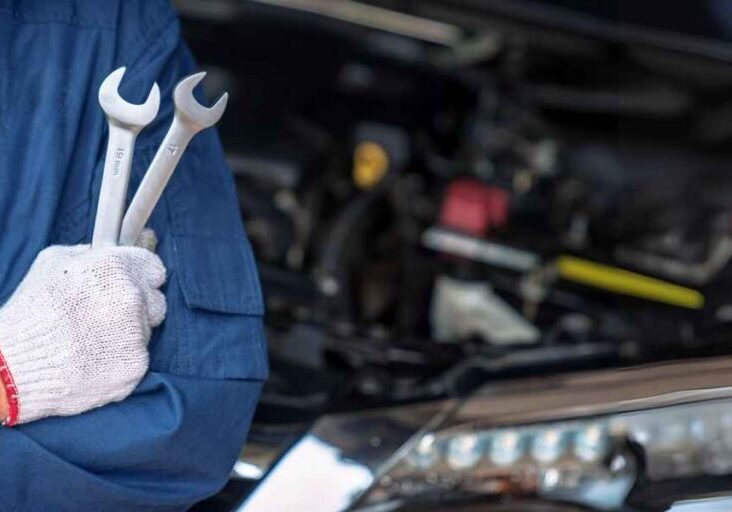Hello, fellow road companions and auto enthusiasts! Buckle up as we embark on an extended journey through the intricate world of auto repair myths and misconceptions. Navigating the vast landscape of vehicle maintenance can sometimes feel like a maze, and we’re here to guide you through it. Whether you’re searching for “auto repair service near me” or just eager to demystify common auto repair myths, join us on this extended adventure of engine truths and debunked myths.
Myth 1: Engine Oil Change Every 3,000 Miles is a Must
The Truth:
The conventional wisdom of changing engine oil every 3,000 miles has evolved. Most modern vehicles can comfortably go between 7,500 to 10,000 miles between oil changes. Always consult your owner’s manual for specific recommendations tailored to your vehicle’s needs. It is important to note that the interval between oil changes may vary depending on factors such as driving conditions and the type of oil used. Additionally, advancements in engine technology and synthetic oils have contributed to longer-lasting oil that can maintain its effectiveness for a longer period.
Myth 2: Premium Fuel Guarantees Better Performance
The Truth:
In a situation where your car doesn’t specifically necessitate high-octane fuel, applying it delivers no extra advantages. High-octane or premium gas is particularly fabricated for high-execution motors, and its use in ordinary engines does not amplify performance or fuel efficacy. Indeed, engaging premium gas in a regular engine might initiate a reduction in performance and fuel productivity. This occurs since premium fuels come with an elevated octane number, designed exclusively to impede the knock-on effect in high-performance motors and not required for standard engines developed for conventional unleaded gas.
Myth 3: Idling Your Engine Before Driving is Necessary
The Truth:
Contemporary engines are tailored to rapidly heat up, even amidst frosty climates. Leaving your car idling for an extended duration is unnecessary and may contribute to the rise of emissions and fuel usage. A subtle driving approach during the initial minutes serves as a more optimum engine warming strategy. Besides, excessive engine idling can lead to wear and tear of vital engine constituents such as the spark plugs and cylinders. As a result, it is advisable to initiate driving post a brief warm-up span for an ideal engine output and fuel economy.
Myth 4: Warning Lights Can Be Ignored Until Your Next Service
The Truth:
Warning lights are your car’s early warning system. Ignoring them can lead to more significant problems and expensive repairs. Addressing warning lights promptly is crucial to prevent further damage and maintain your vehicle’s health. Ignoring warning lights can also put your safety at risk, as they often indicate potential issues with crucial components like brakes or engines. It is always recommended to consult a professional mechanic as soon as a warning light appears to ensure the proper functioning of your vehicle and avoid any potential accidents on the road.
Myth 5: Inflate Your Tires to the Pressure on the Sidewall
The Truth:
The tire pressure listed on the tire sidewall is the maximum pressure the tire can handle, not the recommended pressure for your vehicle. The correct tire pressure is specified in your vehicle’s owner’s manual or on a sticker usually found in the door jamb. It is important to follow the recommended tire pressure for your vehicle as it ensures optimal performance, fuel efficiency, and tire longevity. Failing to do so can result in poor handling, uneven tire wear, and an increased risk of a blowout.
Myth 6: Only Replace the Flat Tire
The Truth:
While it’s tempting to replace only the flat tire, it’s best to replace tires in sets of two or four. Mismatched tires can affect the balance and handling of your vehicle. If one tire has reached the end of its life, consider replacing its counterpart on the same axle. This will help maintain the overall stability and performance of your vehicle. Additionally, replacing tires in sets ensures even wear and extends the lifespan of your new tires, saving you money in the long run.
Myth 7: DIY Repairs Are Always Cheaper than Professional Service
The Truth:
Certain car maintenance duties are manageable for DIY enthusiasts, but intricate repairs should be assigned to seasoned professionals. Undertaking complex repairs yourself may result in further complications, thereby escalating costs in the long run. Routine upkeep procedures like oil replacements and tire rotations are areas where DIY efforts can be economical. But when dealing with complex issues concerning the vehicle’s engine, transmission, or electric systems, it is wise to consult professional mechanics. These experts possess the necessary skill set and specialized equipment to accurately identify and rectify complicated vehicle issues, hence guaranteeing your vehicle’s safety and lifespan.
Myth 8: Auto Mechanics Can Instantly Diagnose a Problem
The Truth:
Diagnosing car issues can be akin to detective work. Sometimes, it takes time to identify the root cause of a problem accurately. Be patient and provide your mechanic with as much information as possible to assist in the diagnosis. Your mechanic may need to perform various tests, and inspections, and possibly consult diagnostic tools to pinpoint the exact issue. Remember that a thorough diagnosis is crucial for an effective and lasting repair.
Myth 9: All Auto Repair Shops Charge the Same Rates
The Truth:
Auto repair rates can vary based on factors such as location, shop reputation, and the expertise of the mechanics. It’s always a good idea to obtain multiple quotes and choose a shop that offers a fair balance of quality service and reasonable pricing. By comparing quotes from different auto repair shops, customers can ensure they are getting the best value for their money. Additionally, it is important to consider that some shops may offer special discounts or promotions that can further lower the overall cost of repairs.
Myth 10: New Cars Don’t Need Regular Maintenance
The Truth:
Even brand-new cars require regular maintenance to ensure optimal performance and longevity. Following the manufacturer’s recommended maintenance schedule is crucial, and skipping routine service can void warranties. Regular maintenance is essential for new cars as it helps identify any potential issues early on and prevents them from escalating into major problems. Additionally, adhering to the recommended maintenance schedule not only helps maintain the car’s performance but also preserves its resale value in the long run.
Navigating the Road of Auto Repair Wisdom: Finding Reliable Auto Repair Services Near You
Now that we’ve cleared the air on some common auto repair myths, let’s delve into finding reliable auto repair services near you in greater detail.
1. Word of Mouth:
Personal referrals hold high value. Solicit advice from friends, relatives, or colleagues regarding their experiences with local car repair outlets. Their firsthand accounts can steer you towards reliable service providers.
2. Online Reviews:
Dive into online reviews to gather comprehensive feedback on neighborhood auto repair services. Actual customer experiences, shared on these platforms, can offer you valuable perspectives on the service standard of these outlets.
3. Certifications and Qualifications:
Ensure that both the auto repair shop and its mechanics hold the necessary certifications and qualifications. Certifications indicate a commitment to professionalism and expertise in the field.
4. Transparent Communication:
Opt for a car maintenance shop that provides crystal clear communication. A trustworthy establishment will detail the issues with your vehicle in comprehensible dialect, supply cost estimates before embarking on repair work, and maintain a regular information flow throughout the repair process.
5. Warranty on Repairs:
A reputable car repair entity should be willing to affirm the quality of its services. Keep eyes open for an establishment that provides warranty on their repairs. Such a warranty echoes not only the facility’s confidence in its work but also extends the added advantage of reassurance to you.
Conclusion: Steering Clear of Auto Repair Myths
As we extend our exploration into the world of auto repair myths, consider this your roadmap to a well-maintained and smoothly running vehicle. Armed with the knowledge from debunking these common auto repair myths, you’re now equipped to make informed decisions about your car’s care. Whether you need routine maintenance or tackling a more complex repair, may your automotive journey be smooth, and your engine forever purr with contentment! Remember, Anthony’s Auto Service is always there to help you!
Anthony's Auto Service
Share this article:
You May Also Like



